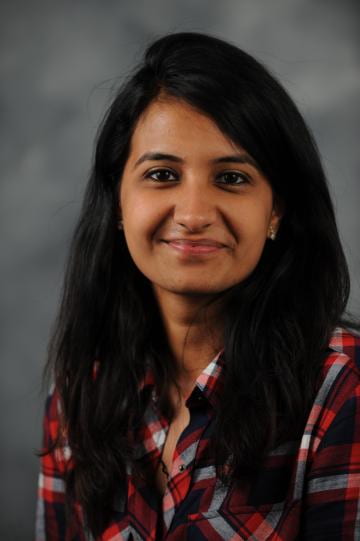I am very grateful to the Lisa Walker committee for awarding me funds that made my travel to American Physical Society (APS), March Meeting possible. At this point in my research, I am trying to implement a Machine Learning (ML) technique to narrow down the vast sample space of semiconducting materials and accelerate the search for the ones with desired chemical structure, composition, or processing conditions that meet a desired set of criteria, for instance, choosing specific electronic properties. Traditional approach is to sequentially vary those parameters until exhaustion is achieved. But this approach is too wasteful in terms of time, effort, and money. Integrating ML in molecular simulations is a new concept and there are very few papers out there which talk about the fundamentals involved in implementing this novel approach.
APS is one of the biggest conferences in physics in the world that hosts intensive sessions in topics including atomic, molecular, and computational physics. Presenting at APS was a very valuable opportunity as it allowed me to interact with ML and molecular simulation experts and receive their valuable feedback. Some of the suggestions were very insightful and helped me build a deeper understanding of the underlying mechanism. Additionally, I gained a broader sense of where this field is headed. I found networking with experts and peers to be really useful in sharing ideas and building contacts to be able to work towards the advancement of a common goal of accelerating materials discovery and design.
Presenting my talk at APS, March Meeting, LA, CA. 3/7/2018
- Nikita Sengar, Clancy Group


